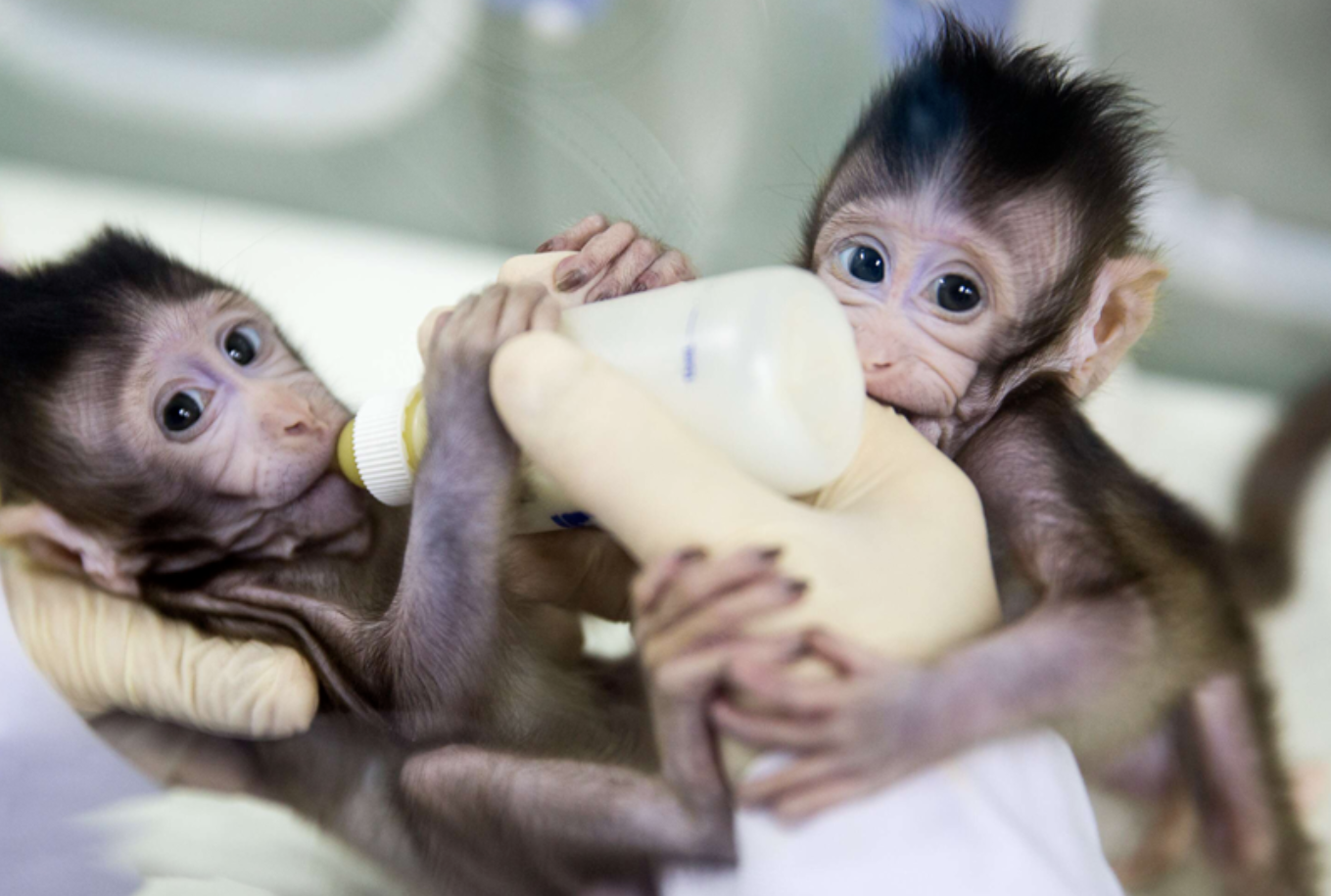Scientists in China have successfully created two cloned monkeys.
This is a world first and the latest step in the country's ambition of becoming a global scientific leader.
The long-tailed macaques, named Zhong Zhong and Hua Hua, were created using the same technique that produced Dolly the sheep back in 1996.
How were they created?
The macaques were made from cells taken from an aborted female monkey fetus, according to The New York Times.
From those, 149 early embryos were created, of which 79 were healthy enough to be transferred into the uterus of surrogate monkey mothers.
Almost all of the surrogates miscarried, resulting in two live births in the end.
The macaques are now both six and eight weeks old, and are apparently developing normally, according to The Financial Times.
The team of scientists expects more macaque clones to be born over the coming months.
No worries, humans won't be next
Previously, cloning efforts using the somatic cell nuclear transfer (SCNT) method had failed, often resulting in clones that didn't develop properly as embryos or died shortly after birth.
However, with this new development, SCNT cloning has finally been achieved with primates, making human cloning now theoretically possible.
But the Chinese scientists don't seem keen on the idea.
Muming Poo, a co-author of the study, stressed that they have no intention to apply this method to humans as they only cloned the monkeys to produce animal models useful for medicine and human health.
[related_story]
So, what's the significance?
At a time when the United States (US) is backing away from the use of primates in medical research, China has just gotten started, with the latest success in primate cloning leading the way.
China has less rigid testing regulations than many other countries, although the scientists involved followed guidelines for animal research set up by the US National Institutes of Health.
The cloned macaques are also a success story of the Chinese government's push for advancement in fields ranging from quantum computing to biology through increased funding in basic research.
The country has set targets to outpace the US and Europe in science and tech innovation, aiming to become a leading innovator by 2030, and the undisputed global science and tech leader by 2049.
Top image via Baidu
If you like what you read, follow us on Facebook, Instagram, Twitter and Telegram to get the latest updates.
